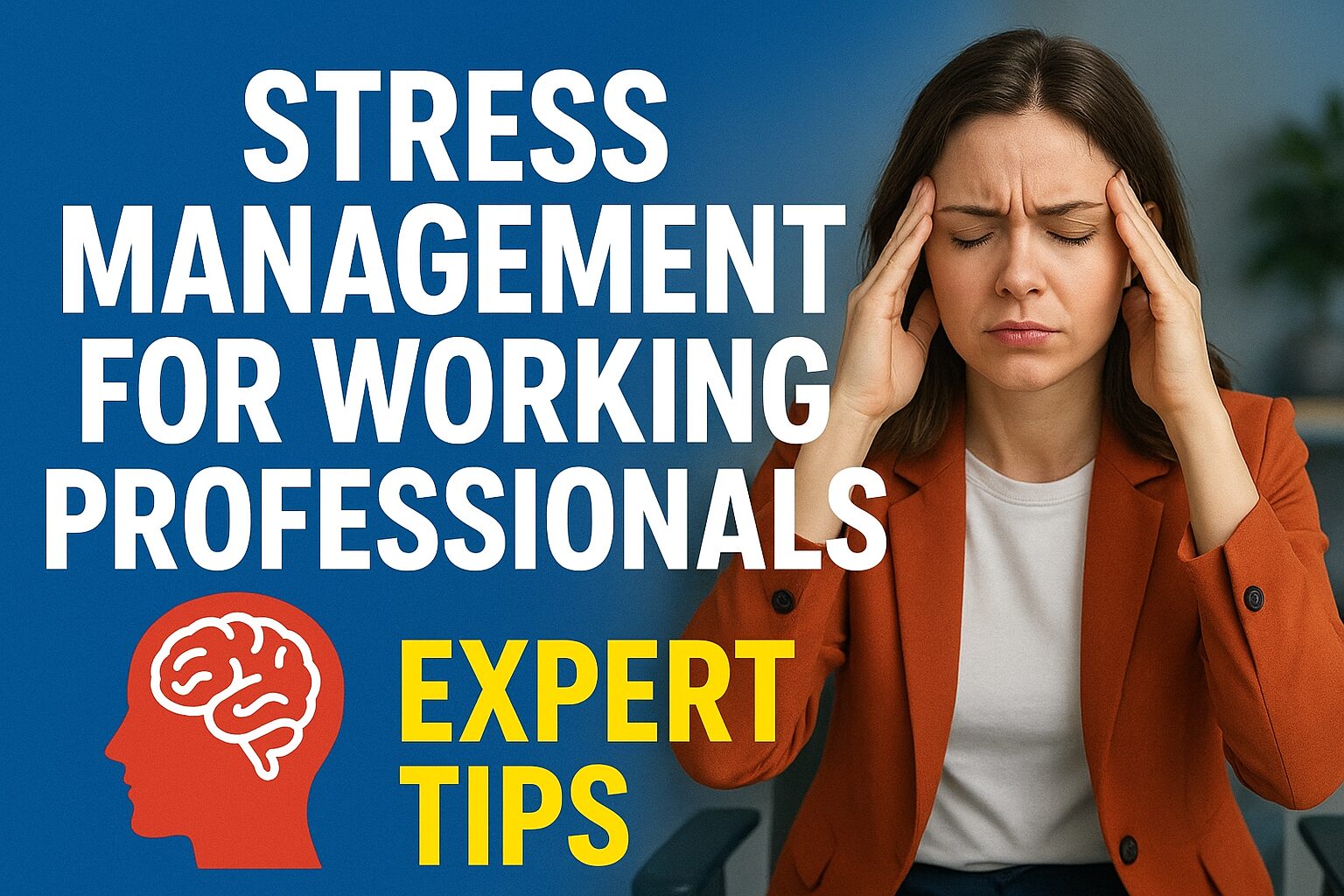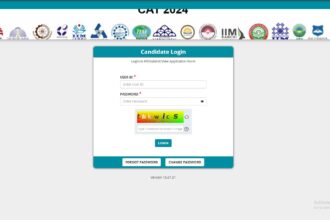In today’s fast-paced work culture, stress management for working professionals has become more crucial than ever. With deadlines, digital overload, and work-from-home fatigue, the line between personal and professional life is increasingly blurred. Mental health experts are warning that unmanaged stress can lead to burnout, anxiety, and long-term health problems but there are practical ways to regain control.
- 1. The Growing Mental Health Crisis at Work
- 2. Understanding the Root Causes of Workplace Stress
- 3. Simple Daily Habits to Reduce Stress Naturally
- 4. The Role of Employers in Reducing Stress
- 5. Digital Detox & the Power of Disconnection
- 6. Nutrition & Exercise: The Hidden Weapons Against Stress
- 7. When to Seek Professional Help
- Conclusion:
1. The Growing Mental Health Crisis at Work
Recent global studies by the World Health Organization (WHO) and Harvard Business Review reveal that over 70% of employees experience moderate to high stress levels at least once a week. This number has surged post-pandemic due to remote work, digital communication overload, and unrealistic performance expectations.
Dr. Meena Kapoor, a workplace psychologist, explains, “When the brain is in a constant fight-or-flight mode, even simple decisions feel exhausting. Chronic stress can disrupt sleep, digestion, and immune function.”
Work-related stress is now one of the leading causes of absenteeism, contributing to lower productivity and higher healthcare costs for companies.
2. Understanding the Root Causes of Workplace Stress
To manage stress effectively, one must first identify its causes. The most common triggers among professionals include:
- Long working hours and tight deadlines
- Lack of work-life balance
- Poor communication within teams
- Job insecurity or performance pressure
- Digital fatigue from excessive screen time
Experts recommend keeping a daily mood journal to recognize patterns and triggers. Awareness is the first step toward change.
3. Simple Daily Habits to Reduce Stress Naturally
Small lifestyle changes can make a huge difference. Here are proven techniques to manage stress effectively:
- 🧘 Practice mindfulness or meditation: Just 10 minutes a day can lower cortisol levels and calm your mind.
- 🚶 Take short breaks: Step away from your desk every 60–90 minutes to refresh focus.
- 🕓 Set boundaries: Avoid checking work emails after office hours.
- 💤 Prioritize sleep: Aim for 7–8 hours of restful sleep for mental recovery.
- 🥗 Eat healthy meals: Avoid excessive caffeine and processed foods that increase anxiety.
- 🤝 Talk about your stress: Sharing your feelings with a trusted colleague or friend helps lighten the load.
4. The Role of Employers in Reducing Stress
Progressive companies are realizing that employee well-being directly impacts performance. Organizations like Google, Microsoft, and Infosys have introduced stress-relief programs such as meditation breaks, flexible schedules, and mental health counseling.
Corporate HR consultant Anjali Sharma says, “Investing in mental wellness programs is not an expense — it’s a productivity booster.”
Companies that promote mental health awareness see improved job satisfaction, creativity, and team collaboration.
5. Digital Detox & the Power of Disconnection
One major stress contributor is constant connectivity. Endless notifications, emails, and meetings drain focus and energy. Experts advise a “digital detox” dedicating a few hours daily to disconnect from screens.
Try adopting the 20-20-20 rule: every 20 minutes, look 20 feet away for 20 seconds. It reduces eye strain and mental fatigue. Also, spend time outdoors or engage in hobbies to rejuvenate your brain.
6. Nutrition & Exercise: The Hidden Weapons Against Stress
Food and physical activity play a powerful role in mental balance. Research shows that regular exercise releases endorphins natural stress fighters. Even a 30-minute walk, yoga, or cycling session can elevate mood and energy.
Foods rich in omega-3 fatty acids (like walnuts, salmon, and flaxseed) support brain health. Similarly, magnesium-rich foods (like spinach and almonds) help regulate stress hormones.
Avoid excessive sugar and caffeine they provide temporary energy but lead to long-term crashes.
7. When to Seek Professional Help
If stress begins to interfere with your daily life, relationships, or physical health, it’s essential to seek help. Therapists and counselors can teach effective coping mechanisms through Cognitive Behavioral Therapy (CBT) and relaxation training.
There’s no shame in therapy — it’s as normal as consulting a doctor for physical pain. Taking early steps can prevent burnout and long-term psychological issues.
Conclusion:
In 2025, stress management for working professionals is no longer optional — it’s essential for survival and success. Whether you’re working remotely or in an office, balancing your workload with mental wellness is the key to a healthy, productive life. Start small, set boundaries, and remember: your mind deserves care just as much as your career.








